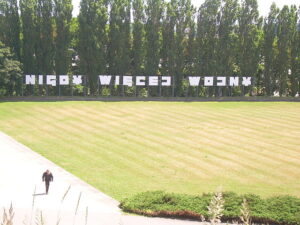We invited you to the event “History, Heritage, Memory and beyond – fuzzy boundaries or productive synergies?”.

This workshop will discuss the challenges and opportunities inherent to the interdisciplinary fields of Memory Studies, (Critical) Heritage Studies, (Public) History, and beyond. What problems are created by the often “fuzzy” boundaries between these fields, and what productive synergies are enabled? What is changing in terms of boundary-keeping between disciplinary communities? What new interdisciplinary communities are developing and where? Do separate definitions and identities serve a useful purpose and within which contexts? Are new fields, concepts and forms of knowledge developing, and if so, with what aims and ambitions?
From the 1980s, with the memory and heritage boom, many scholars (including Pierre Nora, Aleida Assmann and David Lowenthal) focussed on attempting to differentiate between “history and memory” or between “history and heritage”. In these debates, sharp contrasts were often drawn, for example: memory and heritage were seen as being more concerned with the effects of the past on the present than with the past itself; history was considered to be “truth”-oriented and academic; heritage was perceived as user-oriented, aiming at identity production. In other words, academically, memory and heritage were often perceived as dynamic but potentially flimsy, while history tended to be seen as more steadfast but also brittle.
Subsequent scholarship has taken up the conceptual oppositions posed then and moved the concepts forward into the broader fields of Critical Heritage Studies, Contemporary History, Memory Studies and Public History today. While firm disciplinary distinctions led to the emergence of such new interdisciplinary fields, contemporary research addressing the past within the present relies on receptivity to mutually complementing concepts, in order to open up new methodological avenues and analytical frames. In recent years, the ‘old’ dichotomies have broken down even more and sharp boundaries between memory, heritage and (public) history can hardly be postulated today. But does this dissolve all differences between them?
What differing approaches are there in Memory Studies, (Critical) Heritage Studies, and (Public) History? Do we need greater interdisciplinary work or are disciplinary boundaries already irrelevant? How might these more dynamic critical approaches influence and shape the field of history in the present and future? What is the significance of historical distance (both temporal and emotional) to contemporary memory and heritage-based approaches to the past, which often rely on resonance in the present? Is such distance ever possible, or is it merely another epistemological claim?
The workshop aims to spark discussion on the future directions of interdisciplinary working across these fields – where will the future take us and what synergies will be important? What boundaries remain, which are needed and why, or why not?
The event will take place on 18 April 2023 at 9 am.
Registration link: http://bitly.pl/Bl7z5




